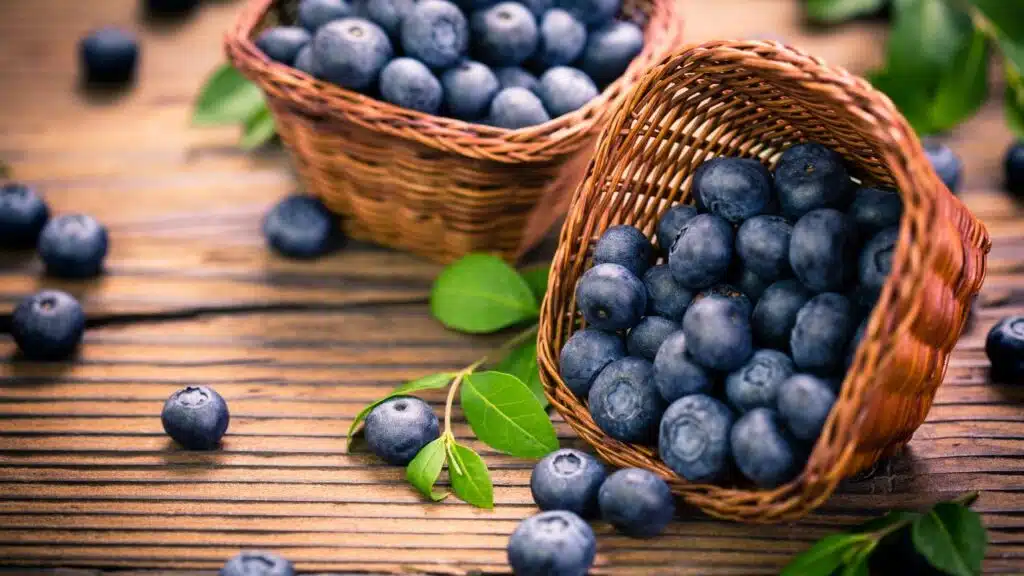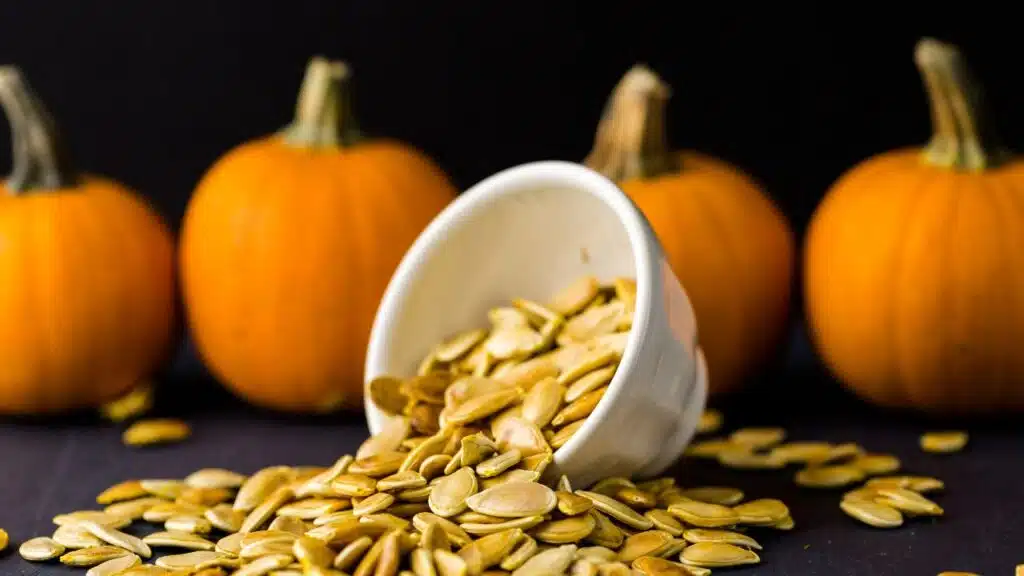Maintaining mental clarity and focus is essential for productivity, creativity, and overall well-being. With the fast-paced demands of modern life, many people seek natural ways to enhance cognitive function, reduce mental fatigue, and improve focus.
Nutrition plays a significant role in supporting brain health. Certain foods, rich in antioxidants, vitamins, and healthy fats, have been shown to improve memory, concentration, and mental sharpness.
In this article, we’ll explore the top 10 foods that are scientifically proven to boost mental clarity and focus. By incorporating these foods into your daily diet, you can improve cognitive function, enhance productivity, and support long-term brain health.
Why Nutrition is Essential for Mental Clarity and Focus?
The brain is one of the most energy-demanding organs in the body, consuming about 20% of our daily caloric intake. It requires a constant supply of nutrients to function optimally.
Diets high in processed foods, sugar, and unhealthy fats can lead to inflammation and oxidative stress, which negatively impact brain health.
Conversely, a diet rich in whole foods, antioxidants, healthy fats, vitamins, and minerals can protect the brain, support neuron function, and improve cognitive abilities. Here’s a deeper look at why nutrition is key for mental clarity and focus:
- Improved Cognitive Function: Nutrients like omega-3 fatty acids and antioxidants support brain cells, improve communication between neurons, and help prevent cognitive decline.
- Enhanced Memory and Focus: Vitamins and minerals play a critical role in neurotransmitter synthesis, impacting memory, focus, and mood.
- Reduced Brain Fog: Certain foods reduce inflammation and oxidative stress, which helps decrease mental fatigue and improve clarity.
Let’s dive into the top 10 foods that can help you achieve better mental clarity and focus.
1. Fatty Fish
Fatty fish such as salmon, trout, sardines, and mackerel are among the richest sources of omega-3 fatty acids, which are crucial for brain health.
The brain is composed of about 60% fat, much of which is omega-3 fatty acids. These fats are essential for building brain and nerve cells, supporting cognitive function, and reducing inflammation in the brain.
- Improved Communication Between Neurons: Omega-3s help build cell membranes in the brain, enhancing connectivity and communication between neurons.
- Reduced Inflammation: Omega-3 fatty acids have anti-inflammatory properties that help protect brain cells from damage and oxidative stress.
- Enhanced Memory and Learning: Studies suggest that people who consume more omega-3s have better memory and cognitive performance.
How to Incorporate Fatty Fish
Aim to include fatty fish in your diet at least twice a week. You can enjoy grilled salmon with vegetables, add sardines to salads, or include trout in your pasta for a brain-boosting meal.
2. Blueberries
Blueberries are packed with antioxidants, particularly flavonoids, which have been shown to improve cognitive function and memory.
These antioxidants protect the brain from oxidative stress and inflammation, which can contribute to brain aging and neurodegenerative diseases.
- Protects Brain Cells: Antioxidants in blueberries combat free radicals that damage brain cells and accelerate aging.
- Enhances Communication Between Brain Cells: Flavonoids in blueberries stimulate the growth of new brain cells and improve neural pathways involved in memory and learning.
- Boosts Focus and Concentration: Consuming blueberries has been linked to improved cognitive abilities, including focus and concentration.
How to Incorporate Blueberries
Add a handful of blueberries to your morning smoothie, mix them into yogurt, or enjoy them as a refreshing snack. Frozen blueberries are a convenient option that retains the same nutrients as fresh berries.
3. Dark Leafy Greens
Dark leafy greens like spinach, kale, and Swiss chard are rich in brain-boosting nutrients such as vitamin K, lutein, folate, and beta carotene. These nutrients have been linked to slower cognitive decline and improved memory.
- Vitamin K for Cognitive Health: Vitamin K supports brain function and has been linked to better memory and learning abilities.
- Antioxidants to Combat Inflammation: Dark greens contain antioxidants that protect brain cells from oxidative damage.
- Folate for Mental Clarity: Folate (vitamin B9) supports DNA repair and neurotransmitter synthesis, which is essential for mood regulation and mental clarity.
How to Incorporate Dark Leafy Greens
Try adding dark leafy greens to salads, smoothies, and omelets, or sauté them as a side dish. Including a variety of greens in your diet will help maximize the range of nutrients your brain receives.
4. Walnuts
Walnuts are a rich source of alpha-linolenic acid (ALA), a type of plant-based omega-3 fatty acid that supports brain health. They also contain antioxidants, vitamin E, and polyphenolic compounds that protect the brain from damage.
- Improved Cognitive Function: Omega-3s in walnuts support cell membranes, which are crucial for memory and learning.
- Reduced Oxidative Stress: Antioxidants in walnuts protect brain cells from oxidative stress, helping to prevent cognitive decline.
- Vitamin E for Brain Health: Vitamin E in walnuts has neuroprotective effects, which can help prevent age-related cognitive decline.
How to Incorporate Walnuts
Enjoy a handful of walnuts as a snack, sprinkle them on salads, or add them to oatmeal and smoothies. Consuming just a small amount daily can provide substantial cognitive benefits.
5. Turmeric
Turmeric contains curcumin, a powerful compound with anti-inflammatory and antioxidant properties. Curcumin can cross the blood-brain barrier, allowing it to directly benefit the brain and enhance cognitive function.
- Improves Memory: Curcumin has been shown to increase levels of brain-derived neurotrophic factor (BDNF), which supports memory and learning.
- Reduces Depression and Anxiety: Curcumin boosts serotonin and dopamine levels, improving mood and reducing symptoms of anxiety and depression.
- Protects Brain Cells: The anti-inflammatory effects of curcumin protect brain cells from oxidative stress and inflammation.
How to Incorporate Turmeric
Add turmeric to curries, soups, or smoothies, or try making a turmeric tea or golden milk. Combining turmeric with black pepper enhances curcumin absorption, making it more effective.
6. Pumpkin Seeds
Pumpkin seeds are packed with magnesium, iron, zinc, and copper, all of which are essential for brain health. These minerals support nerve signaling, memory, and overall cognitive function.
- Zinc for Nerve Communication: Zinc plays a crucial role in nerve signaling and is linked to better cognitive performance.
- Magnesium for Mental Clarity: Magnesium supports brain plasticity, which is essential for learning and memory.
- Antioxidants to Protect Against Free Radicals: Pumpkin seeds are rich in antioxidants, which combat oxidative damage to brain cells.
How to Incorporate Pumpkin Seeds
Pumpkin seeds are an easy addition to salads, yogurt, oatmeal, or trail mix. Roasting them enhances their flavor, making them a satisfying and healthy snack.
7. Oranges
Oranges are one of the best sources of vitamin C, which is essential for brain health and mental clarity. Vitamin C protects the brain against free radical damage, supports neurotransmitter synthesis, and has been linked to better cognitive function.
- Protects Brain Cells: Vitamin C acts as a powerful antioxidant, protecting the brain from oxidative stress and inflammation.
- Improves Focus and Mood: Vitamin C supports dopamine production, which helps enhance mood, focus, and energy.
- Boosts Memory and Learning: Regular intake of vitamin C-rich foods like oranges is associated with improved memory and cognitive function.
How to Incorporate Oranges
Eat an orange as a snack, add slices to salads, or enjoy freshly squeezed orange juice with breakfast. Vitamin C is best absorbed from whole fruits, so aim for fresh oranges whenever possible.
8. Eggs
Eggs are an excellent source of several essential nutrients linked to brain health, including choline, vitamin B12, folate, and antioxidants. Choline, in particular, is vital for the production of acetylcholine, a neurotransmitter involved in memory and mood regulation.
- Choline for Memory and Focus: Choline supports memory formation and cognitive function, helping improve focus and learning.
- B Vitamins for Mental Clarity: Vitamin B12 and folate are essential for reducing homocysteine levels, which are associated with cognitive decline and memory loss.
- Antioxidants to Protect Brain Health: Eggs contain lutein and zeaxanthin, antioxidants that support brain and eye health.
How to Incorporate Eggs
Incorporate eggs into your diet by enjoying them scrambled, boiled, or in omelets. They are versatile and pair well with other brain-boosting ingredients like leafy greens and avocado.
9. Green Tea
Green tea is loaded with caffeine and L-theanine, both of which enhance brain function. Caffeine provides an immediate boost to focus, alertness, and reaction time, while L-theanine promotes relaxation and calmness without drowsiness.
- Caffeine for Enhanced Alertness: Caffeine in green tea helps improve focus, attention, and reaction time, providing a quick mental boost.
- L-theanine for Calm Focus: L-theanine promotes a state of calm focus, balancing the stimulating effects of caffeine.
- Antioxidants for Long-Term Brain Health: Green tea contains catechins, antioxidants that protect brain cells from aging and oxidative stress.
How to Incorporate Green Tea
Drink green tea in the morning or during the afternoon slump to enhance focus without the jitters associated with coffee. Matcha green tea, a powdered form of green tea, provides even more concentrated benefits.
10. Dark Chocolate

Dark chocolate, especially varieties with at least 70% cocoa, contains flavonoids, caffeine, and antioxidants that have been linked to improved brain function, mental clarity, and mood.
- Flavonoids for Cognitive Enhancement: Flavonoids in dark chocolate improve blood flow to the brain, supporting focus, memory, and mental sharpness.
- Caffeine for Quick Mental Boost: The caffeine content in dark chocolate can improve alertness and focus, making it a great snack before important tasks.
- Mood-Boosting Properties: Dark chocolate stimulates the release of endorphins and serotonin, which enhance mood and reduce stress.
How to Incorporate Dark Chocolate
Enjoy a small square of dark chocolate as a midday snack, or add cocoa powder to smoothies and oatmeal. Be mindful of portion sizes to keep sugar intake low.
Conclusion
Incorporating brain-boosting foods like fatty fish, blueberries, leafy greens, and nuts into your daily diet can enhance mental clarity, improve focus, and support long-term brain health.
By choosing nutrient-rich, whole foods that support cognitive function, you can protect your brain from age-related decline, reduce mental fatigue, and enjoy greater productivity and clarity.
Remember that a balanced diet, along with regular physical activity and adequate sleep, plays a vital role in overall mental well-being.
Aim to include a variety of these foods in your diet, and over time, you’ll likely notice positive changes in focus, memory, and mental sharpness.












































